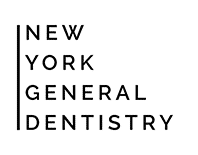During pregnancy, it’s more important than ever to take good care of your oral health. Oral diseases can travel throughout the body and potentially spread bacteria to your child. Luckily, there are many easy preventative steps that you can take at home to effectively care for your oral health.
How Are Oral Health and Pregnancy Connected?
Oral health is closely linked to your overall health. The mouth is an entry point into the body and bacteria that develop in the mouth can travel to other areas like the digestive tract and respiration tract. Some of the bacteria in your mouth are harmless but cavity-causing bacteria and other harmful bacteria can lead to serious complications, including:
- Endocarditis: infection of the inner lining of the heart
- Cardiovascular Disease: some findings have linked heart disease and clogged arteries to gum disease
- Birth Complications: severe gum disease called periodontitis is linked to preterm birth and low birth weight
- Pneumonia: a respiratory condition caused by bacteria pulled from the mouth into the lungs
When you are pregnant, it’s vital that you keep your body healthy to ensure a safe pregnancy for yourself and your child. If your heart and lungs are not working properly, your baby might not be receiving the necessary oxygen and blood flow to properly develop.
Common Oral Health Diseases
Some of the most common oral health diseases and conditions that pregnant women may experience include:
- Gum diseases like gingivitis, caused by the build-up of plaque
- Cavities or dental caries caused by changes to eating habits and nighttime snacking
- Tooth sensitivity to hot or cold foods caused by thin enamel or receding gums
- Bad breath caused by bacteria build-up in the mouth
If these diseases are not treated, you may be at risk of more serious oral health conditions. Cavities can lead to tooth decay and untreated gingivitis can develop into periodontal disease, an infection that can spread to the jaw and bones throughout the body.
Pregnancy and Cavities
Cavities, or the bacteria that cause them, can be transferred from a pregnant woman to her child. This increases the risk of children having cavities at an early age, especially since baby teeth have a thinner enamel layer than adult teeth. When you take steps to prevent cavities from developing in your own mouth, you are also taking steps to manage your child’s oral health and well-being.
Good Oral Health Habits
There are many simple preventative steps that you can take to maintain good oral health care and healthy body functioning. Brush your teeth twice a day and brush upward into the gum line. Use mouthwash to rinse away food particles that bacteria can thrive on and floss daily to clean the nooks and crannies of your teeth. You should also replace your toothbrush every 3-4 months and store your toothbrush in an open space to prevent bacteria build-up. Additionally, be sure to schedule regular dental checkups so that you can catch the earliest signs of oral health disease and effectively treat it.
Dental Care in New York City
At New York General Dentistry, Dr. Chern offers preventative dental treatment and can treat a variety of oral health problems. Schedule an appointment today to improve your dental health care and maintain great overall health.
For over 20 years, Inna Chern DDS FAGD, has been offering personalized, high-tech dental care to Manhattan and NYC residents. With a focus on individualized attention and the latest technology, her modern Midtown East office aims to reshape dental care perceptions in New York by prioritizing patient well-being and innovative services.




